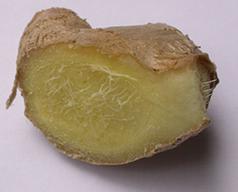Tea and Pregnancy
Last Updated: Oct. 31, 2013by Gretchen Spencer & Alex Zorach

Is it safe to drink tea during pregnancy?
From avid tea enthusiasts to occasional tea drinkers, many women find themselves asking the question of whether tea is safe to consume when they are pregnant, due to its caffeine content. The short answer is yes, in moderation. This article explores what research has been done on this topic, and what recommendations on this topic have been made by organizations of medical professionals.Caffeine and pregnancy:
Black, green, oolong, and white teas all naturally contain caffeine. Caffeine, like alcohol, can pass directly from the mother’s body to the fetus through the placenta, and high amounts can increase the risk of miscarriage, stillbirth, and low birth weight.[1]
Caffeine Molecule
Due to these risks, many doctors recommend that pregnant women limit their caffeine consumption to low levels. According to the American Pregnancy Association, one to three cups of caffeinated tea is likely still safe, but the APA advises pregnant women to consult their midwife, physician, or other medical professional to discuss what would be best for them.[3]
Moderation is key; moderate caffeine use is safe:
The American Congress of Obstetricians and Gynecologists issued a July 2010 press release stating that, based on their review of the scientific literature, moderate caffeine consumption, as defined by less than 200mg of caffeine per day, was safe during pregnancy.[4] It is notable that tea contains substantially less caffeine per cup than coffee, and yet tends to result in a similar boost in alertness and concentration. One 12 oz. cup of coffee can contain 200mg of caffeine, whereas 3 cups of typical tea can contains less than 200mg. Regular coffee drinkers may thus wish to switch to tea in order to reduce their caffeine intake. We have a separate page that goes into more depth about how much caffeine is in different types of tea.Herbal teas and pregnancy:
Herbal teas encompass all hot water infusions made from any plant, and thus are incredibly diverse. The topic of herbal teas and pregnancy is too broad to comprehensively study in a single article. As a word of caution, however, many herbal teas, especially those marketed as medicinal or wellness teas, are potent medicines and can have dangerous side effects. It is best to assume that herbal tea is not necessarily safe during pregnancy, and to consult a medical professional before consuming herbal tea while pregnant.A 2002 compendium of herbal medicines remarked that "Few conventional medicines have been established as safe to take during pregnancy and it is generally recognised that no medicine should be taken unless the benefit to the mother outweighs any possible risk to the fetus".[5] The authors of a 2005 volume on herbal safety also remarked that high doses of herbs, such as those associated with essential oils of an herb, should be avoided during pregnancy and lactation.[6] These authors compiled a list of herbs to be avoided during pregnancy, but it did not contain any herbs commonly used as beverages. However, the 2002 volume by Barnes and Phillipson listed among ingredients to be used with caution during pregnancy, a number of common ingredients in herbal teas, including apricot, calendula, chamomile,eucalyptus, ginseng, hops, nettle, pennyroyal, and many others. The authors remarked that "some of the herbs listed are reputed to be abortifacient or to affect the menstrual cycle although no recent clinical or experimental data exists."[5]
Herbs used to help with pregnancy:
There are several kinds of herbal teas that are suggested to women to help them deal with some of the ailments associated with pregnancy, and to help their bodies naturally prepare for birth. Two of the most popular herbs used in these teas are red raspberry leaf and ginger.Red raspberry leaf may be useful in quieting nausea, strengthening the uterus, and providing essential nutrients, and it is one of the most popular herbs recommended by midwives.[7] Unfortunately, what little research there is on red raspberry leaf is inconclusive – it is likely that raspberry leaf is safe to use during pregnancy, but it may not have much benefit, either.[7]

Ginger root can be used in herbal tea
to treat nausea.
In general, because of the lack of scientifically conclusive, publicly available information, it is always best to consult with a medical professional before deciding on a tea regimen during pregnancy, herbal or otherwise. Tea has some compelling health benefits, but an excess of caffeine can pose serious risks during pregnancy, and certain types of herbal tea can also have a decidedly negative effect on a fetus.
References:
1. “Maternal Consumption of Coffee during Pregnancy and Stillbirth.” Nutrition Research Newsletter 22.3 (2003): 11-12. Health and Wellness Resource Center. Web. 21 July 2010
2. Edelman. “Kaiser Permanente Study Shows Newer, Stronger Evidence That Caffeine During Pregnancy Increases Miscarriage Risk; Coffee, Tea, Soda, Hot Chocolate Present Risk.” Ascribe Higher Education News Service (2008). Health and Wellness Resource Center. Web. 21 July 2010.
3. Drinking Herbal Teas during Pregnancy. American Pregnancy Association. American Pregnancy Association, Oct. 2008. Web. 21 July 2010.
4. No Link Between Moderate Caffeine Consumption and Miscarriage, American Congress of Obstetricians and Gynecologists, Press Release, July 21, 2010.
5. Barnes, Joanne and Phillipson, J. David, Herbal Medicines, 2nd Ed, Pharmaceutical Press, Chicago, 2002
6. Mills, Simon and Bone, Kerry, The Essential Guide to Herbal Safety, Elsevier, St. Louis, 2005.
7. Fugh-Berman, Adriane. “Raspberry Leaf and Pregnancy.” Alternative Therapies in Women's Health 3 (2001): 25-26. Health and Wellness Resource Center. Web. 21 July 2010
8. Koren, Gideon. “Ginger for Nausea and Vomiting.” Internal Medicine News 38.16 (2005): 32. Health and Wellness Resource Center. Web. 21 July 2010.
9. Bauer, Jeff. “Ginger Tea May Ease Pregnancy Nausea.” RN 68.4 (2001): 19. Academic OneFile. Web. 21 July 2010.

